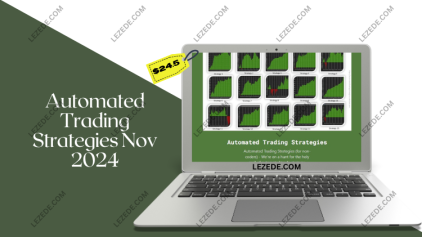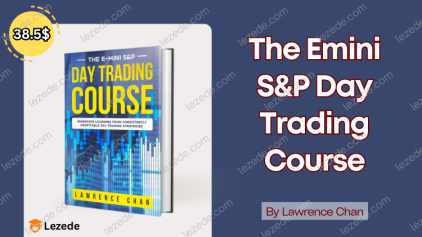Trade and Money Management The Proper Mindset by Master Trader – Includes Verified Content:
Trade and Money Management The Proper Mindset by Master Trader – Free Download Video Sample:
PDF Sample – Trade and Money Management The Proper Mindset by Master Trader, watch here:
Mastering the Mindset of Trading and Money Management: Insights from Elite Traders
In the fast-paced and unpredictable world of trading, cultivating the right mindset is crucial for sustainable success. Top traders often emphasize that mastering the mental side of trading is just as important—if not more so—than technical expertise. Sound money management and emotional control are pillars that underpin long-term profitability. This article explores the psychological components and tactical frameworks that help traders stay grounded and consistent amid market volatility.
Understanding the Importance of the Trader’s Mindset
Trading success goes far beyond the use of sophisticated tools or advanced chart patterns. Research consistently highlights that a trader’s psychological resilience plays a significant role in performance outcomes. Findings from the Journal of Behavioral Finance suggest that mental discipline can outweigh the specific strategy employed.
Adopting a long-term vision is vital. Rather than obsessing over daily profits, elite traders focus on maintaining consistency over time. This broader outlook fosters discipline and minimizes reactionary behavior. For instance, enduring a losing streak without abandoning a proven strategy demonstrates the mental toughness that separates seasoned professionals from beginners. In essence, trading is a test of mental stamina and emotional balance.
Key Psychological Traits of a Winning Trader
The mindset of a successful trader isn’t formed by chance; it’s shaped by distinct psychological strengths that support reliable performance. Here are the most vital traits:
-
Discipline: Following a predefined trading plan consistently helps mitigate risk. This includes sticking to entry and exit rules and maintaining strong risk parameters. Without it, traders risk undermining their own strategies.
-
Emotional Mastery: Controlling fear and greed is fundamental. These emotions often lead to impulsive decisions. According to Financial Analysts Journal, traders with better emotional regulation exhibit more consistent returns.
-
Lifelong Learning: Staying informed is critical. The best traders commit to continuous education—studying market behavior, adjusting to new trends, and refining strategies in real time. This proactive mindset ensures adaptability in changing conditions.
Developing a Trading Strategy
An effective trading strategy combines analytical precision with strategic risk control. Core elements include:
-
Defining Entry/Exit Rules: Traders need a systematic approach to enter and exit trades, based on research and analysis. A clear structure prevents emotional decision-making.
-
Risk-Reward Focus: Maintaining a healthy risk-reward ratio—commonly at least 1:2—helps maximize gains relative to losses. This focus ensures the long-term viability of a strategy.
Backtesting strategies using historical data allows traders to validate and refine their setups before committing real capital. It’s a key step to improve confidence and consistency.
Money Management Principles
To thrive in trading, effective money management is just as critical as a good strategy. Proper practices include:
-
Position Sizing: Calculating how much capital to risk on each trade helps protect your account. Limiting risk to 1–2% per trade is a widely accepted guideline that prevents significant losses.
-
Stop-Loss Discipline: Using stop-loss orders is non-negotiable. They act as a safeguard against large unexpected movements and encourage rational exits instead of emotional ones.
Good money management enables traders to endure rough patches while maintaining capital integrity and psychological confidence.
Practicing Self-Reflection
Top traders often engage in deep self-reflection to improve performance. One proven method is keeping a trading journal.
-
Journaling: Recording every trade—including strategy, emotions, and outcomes—provides invaluable feedback. Reviewing these records helps identify what works and what doesn’t.
-
Spotting Behavioral Patterns: By analyzing repeated behaviors, traders can uncover unhelpful habits like revenge trading or overtrading. Awareness is the first step to correction.
Self-reflection supports continuous growth and contributes to developing emotional intelligence—a critical trait for sustained trading success.
Attitude Towards the Market
Approaching the market with humility and respect is essential. The market doesn’t conform to personal expectations, and recognizing this helps maintain objectivity.
-
Accepting Uncertainty: Financial markets are inherently uncertain. Embracing this reality enables traders to approach every trade with balanced expectations, minimizing emotional disruption.
-
Resilience Building: Traders who respect the market’s power tend to bounce back stronger from setbacks. This mindset fosters longevity and supports a consistent, process-driven approach.
A Commitment to Process Over Outcomes
Successful traders don’t obsess over single trades; they stick to their process regardless of short-term outcomes.
-
Prioritizing Process: Focusing on execution rather than immediate results encourages rational thinking and reduces stress. A International Journal of Business and Management study showed process-oriented traders achieved superior long-term results.
-
Emotional Neutrality: Viewing each trade as part of a broader system helps reduce emotional swings. This consistency allows traders to remain confident even during drawdowns.
Conclusion
To succeed in the financial markets, traders must blend psychological mastery with smart money management. While strategies are important, it’s the mindset—discipline, emotional control, lifelong learning—that truly defines a trader’s journey. Embracing these principles not only enhances individual results but also contributes to the development of a more professional and resilient trading community.










